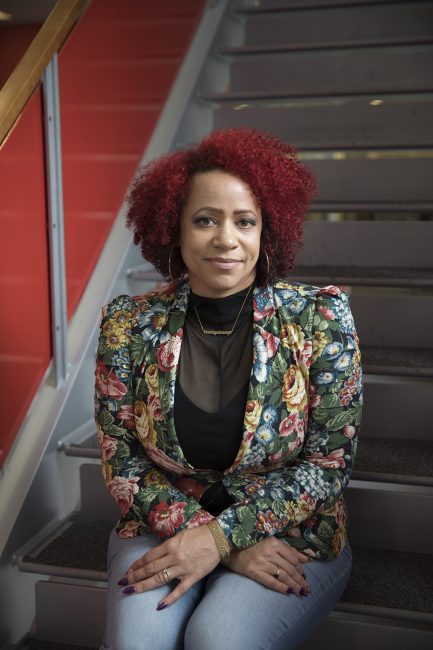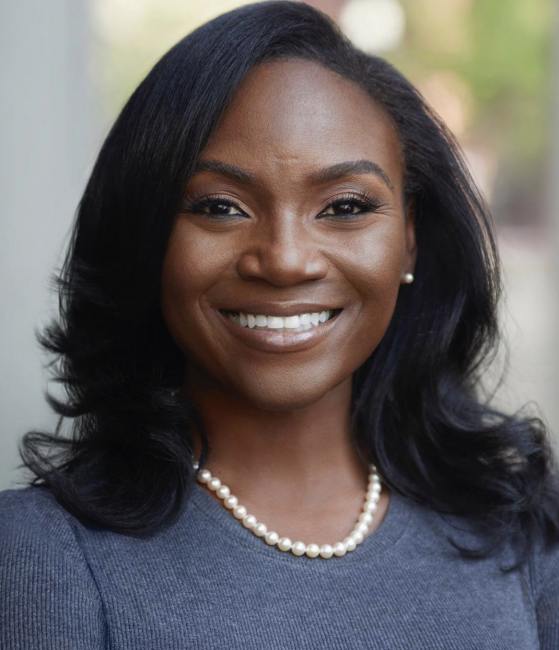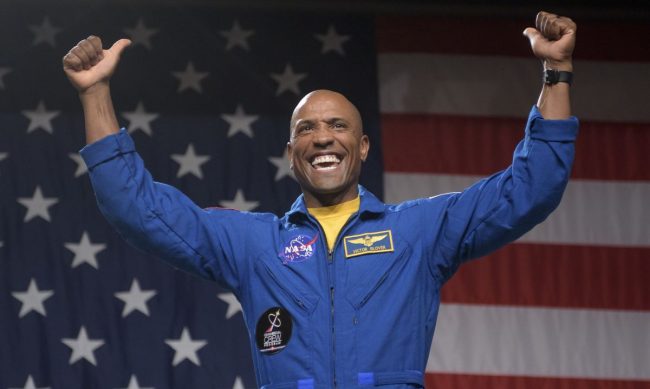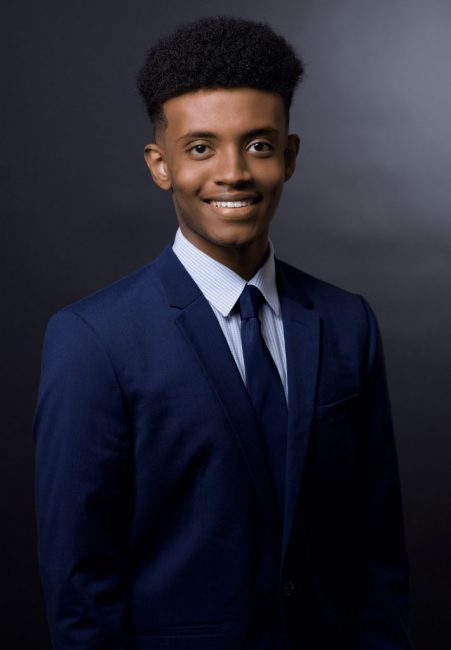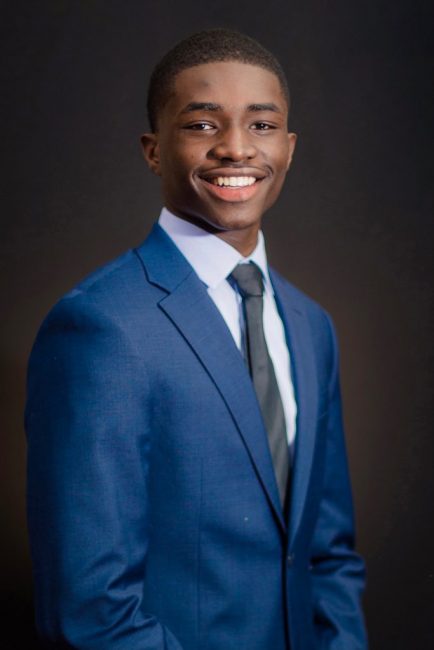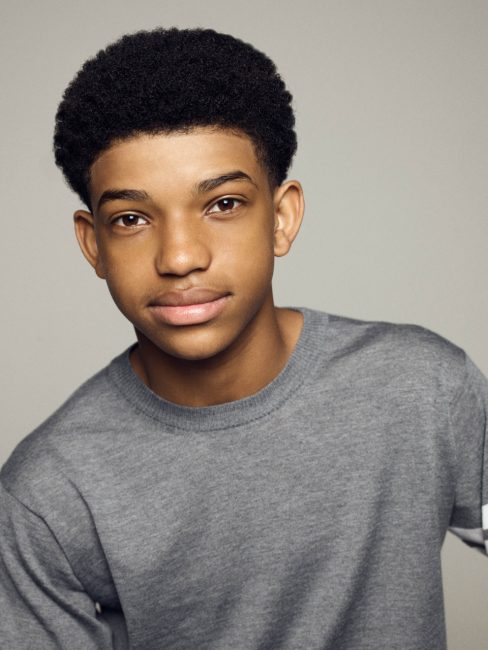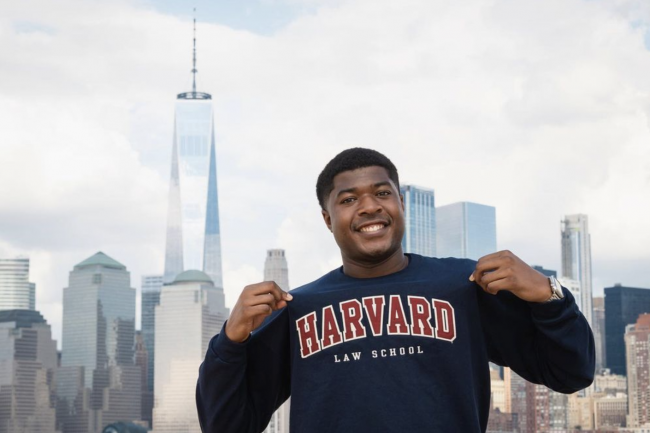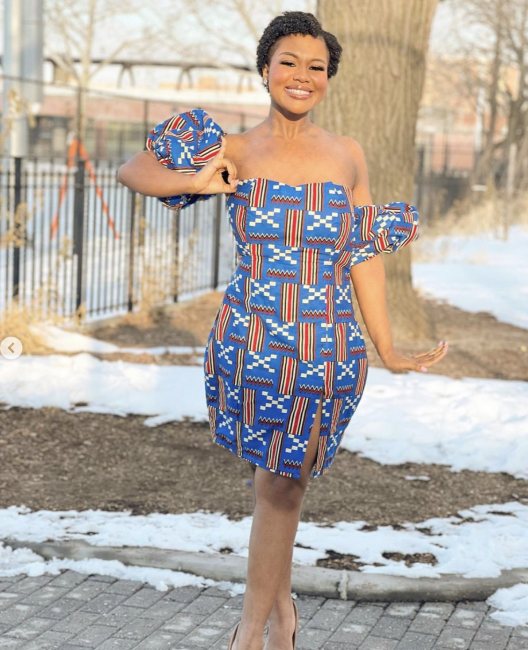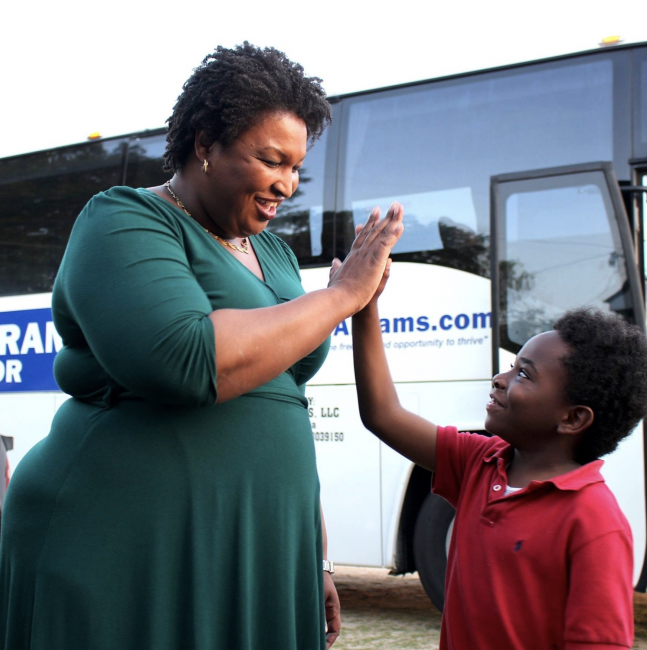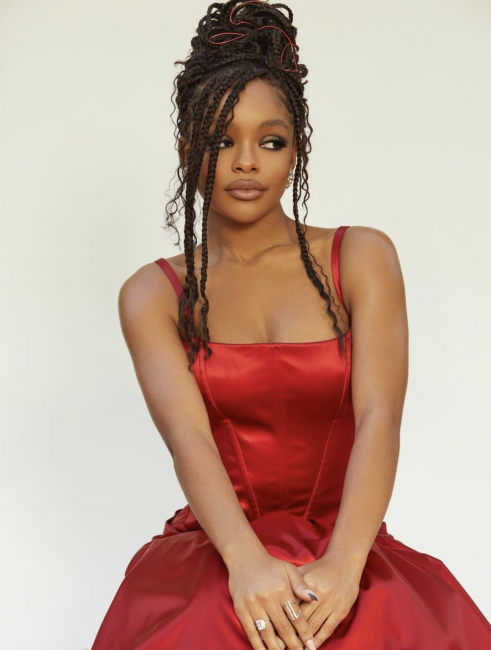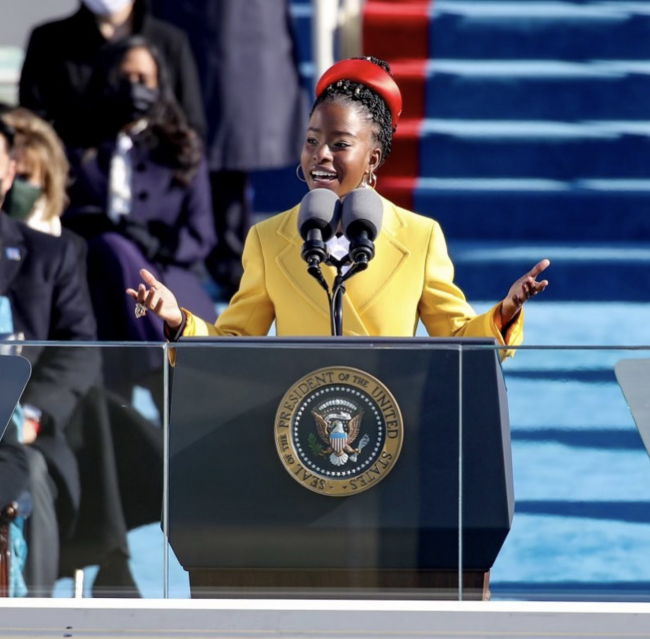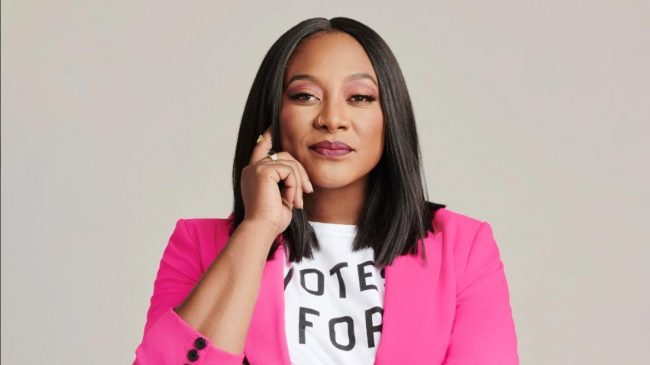Often, when we celebrate Black History Month we think about the Civil Rights leaders and activists of long ago. I remember being in elementary school and feeling like racism was a thing of the past because of the way it was taught. It would be great if we could just talk about social injustices as something that happened long ago but no longer. However, the fact that just this weekend I saw a “White Lives Matter” shirt at an event, means that people still aren’t understanding. All of February, we see quotes from Martin Luther King, Jr. and Malcolm X. These leaders paved the way for a lot of movements but the work did not stop with them. The Civil Rights leaders of the past have passed the torch onto incredible people today, who are speaking out and making a difference for the Black community. Whether that’s through representation that hasn’t been seen before, or creating resources to further protect Black people and educate others. While there are many, here are some that you should know about:
—
—
Alicia Garza

Alicia Garza has a long list of accomplishments that have shaped activism in the last few years. In 2018, she founded the Black Futures Lab, which ended up conducting the Black Census Project, gathering the most information on Black communities in 150 years. From there, she co-founded the Black Lives Matter Global Network and Supermajority. Garza also works as the Strategy & Partnerships Director for the National Domestic Workers Alliance. She uses her published writing and podcast, Lady Don’t Take No, to share her thoughts on topics ranging from politics to gender identities. In her book The Purpose of Power she writes, “It’s important to understand that declaring that Black lives matter does not negate the significance of the lives of non-Black people, particularly non-Black people of color. But Black lives are uniquely and systematically attacked in our society. Black Lives Matter addresses its own necessity in the phrase itself: Black lives do not have value or merit in our society.” Black Lives Matter has been around since 2013, after Trayvon Martin’s murder. Since then, it has become a pivotal part of the demand for reform in the United States’ social injustices. Garza has led thousands of people to either have a platform to be heard or educate themselves on the hate and pain this country still holds so close.
—
—
Amanda Gorman
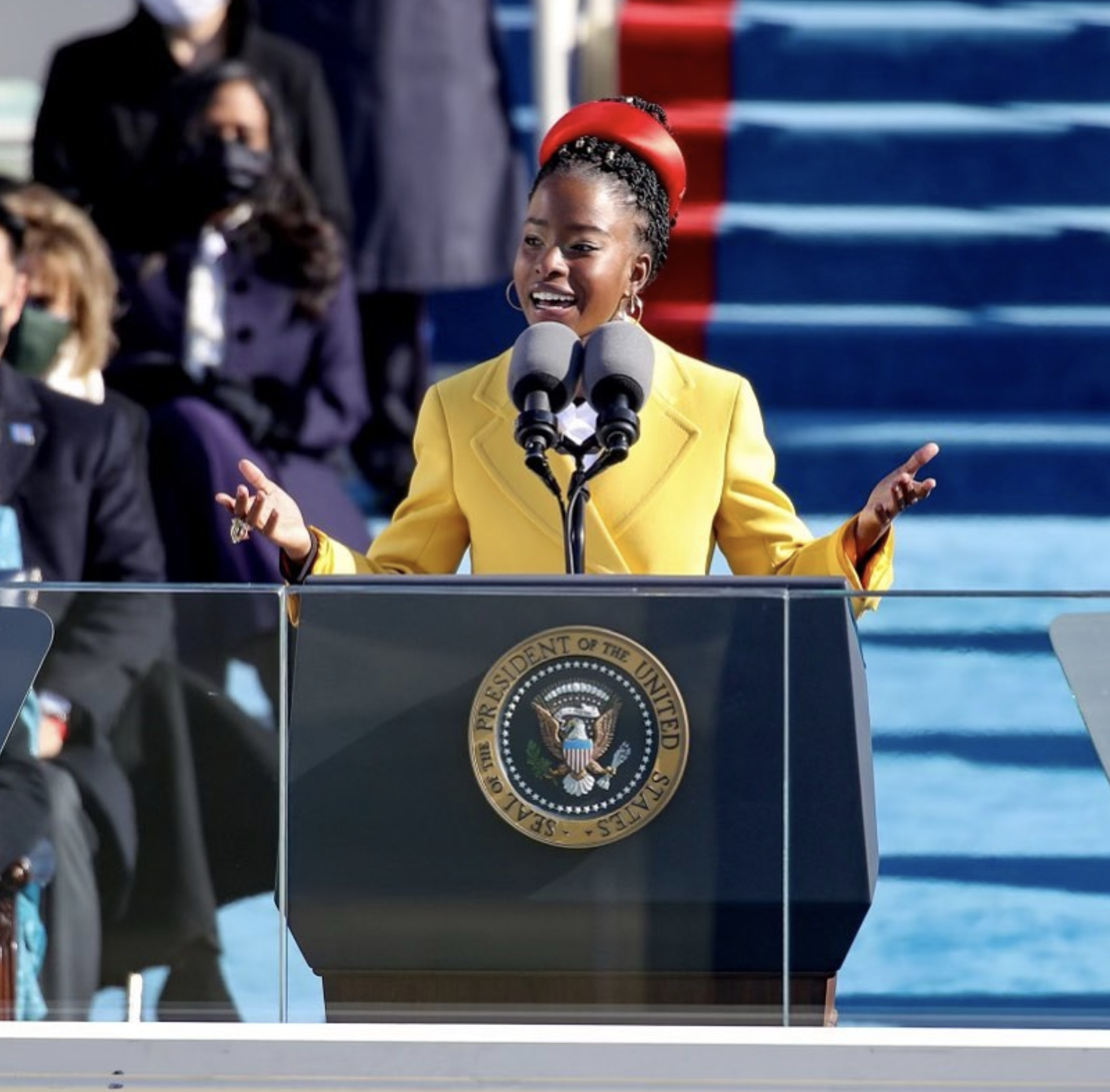
Amanda Gorman made history last year when she became the youngest inaugural poet in U.S. history. She has also authored three books and writes beautifully about painful topics like racial injustices and equality. Gorman has graced the cover of Time Magazine, where Michelle Obama interviewed her. In everything she does, she holds herself with confidence and poise that is sure to inspire those around her. When Obama asked her what she would like to say to young Black girls, Gorman replied, “We’re treated as lightning or gold in the pan—we’re not treated as things that are going to last. You really have to crown yourself with the belief that what I’m about and what I’m here for is way beyond this moment. I’m learning that I am not lightning that strikes once. I am the hurricane that comes every single year, and you can expect to see me again soon.” For girls to see a young Black woman speak at a Presidential inauguration or be interviewed by some of the biggest names, it shows the power of words and experiences that can come from one young person. It tells young people of color that their voice matters and can, in fact, make a difference.
—
—
Marsai Martin
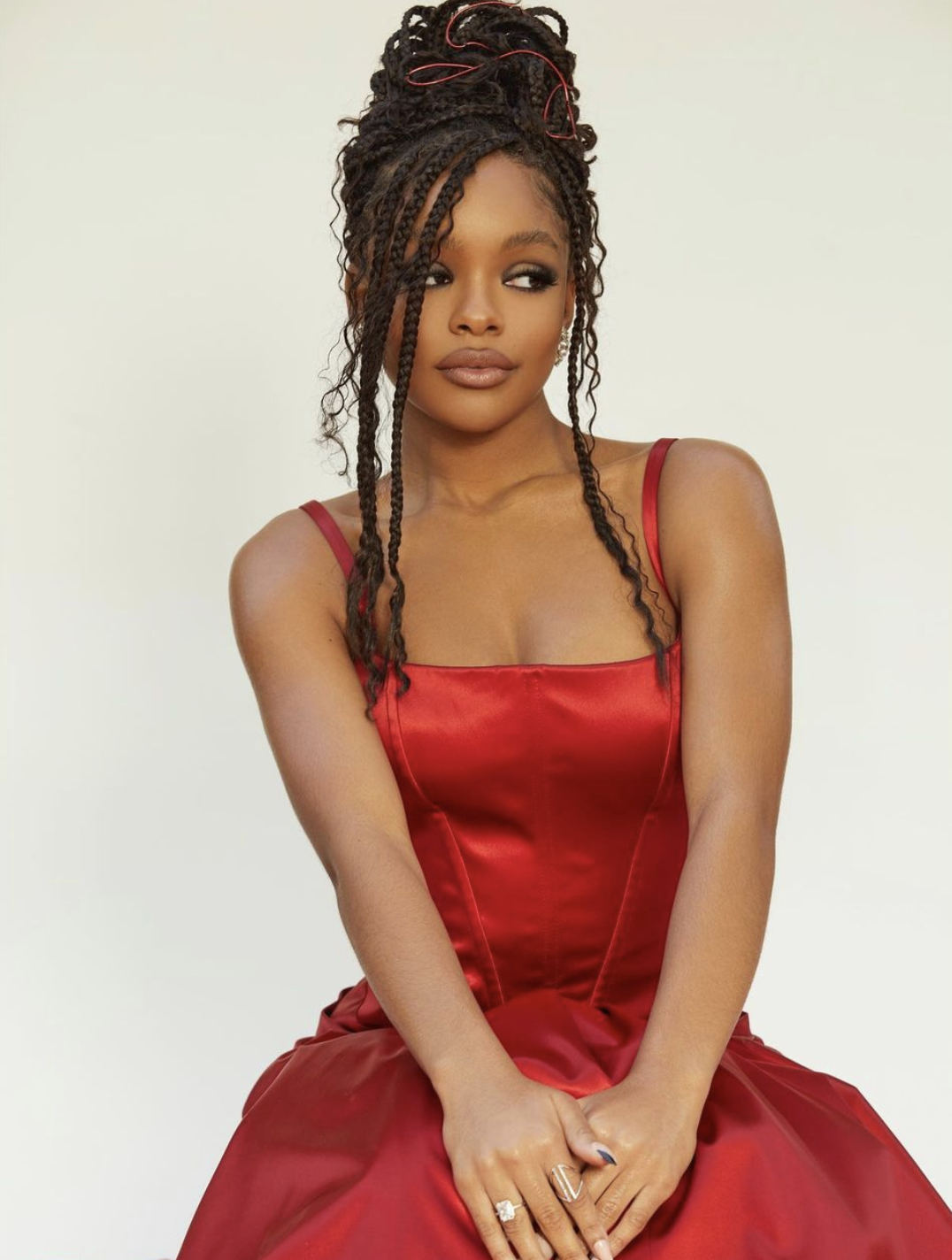
Marsai Martin first gained attention by playing one of the daughters on the sitcom Black-ish. In fact, that was really the first thing Martin tackled in her life, considering she was only 10 years old. That was only the start of her incredible career. Later she became the youngest executive producer in Hollywood, when she produced her film Little, and has now teamed up with Disney to create a series called Saturdays. Martin hopes to change the narrative in Hollywood and told the Hollywood Reporter, “With Black trauma, that’s not the only thing that we are. With me, I want to create content that shows us in romantic films, rom-coms, action films and just things that you see only in a certain realm. I think that is one reason why I will always root for Black joy and spreading positivity in our culture.” Martin recognized the lack of representation for Black people in television & film and has started a mission to change that. To take these stereotypical Black roles and stories and instead make “people” stories, with Black characters, who don’t have to be tied to the way society has portrayed them for years. Martin is rewriting the way Hollywood does things and it’s about time.
—
—
Stacey Abrams
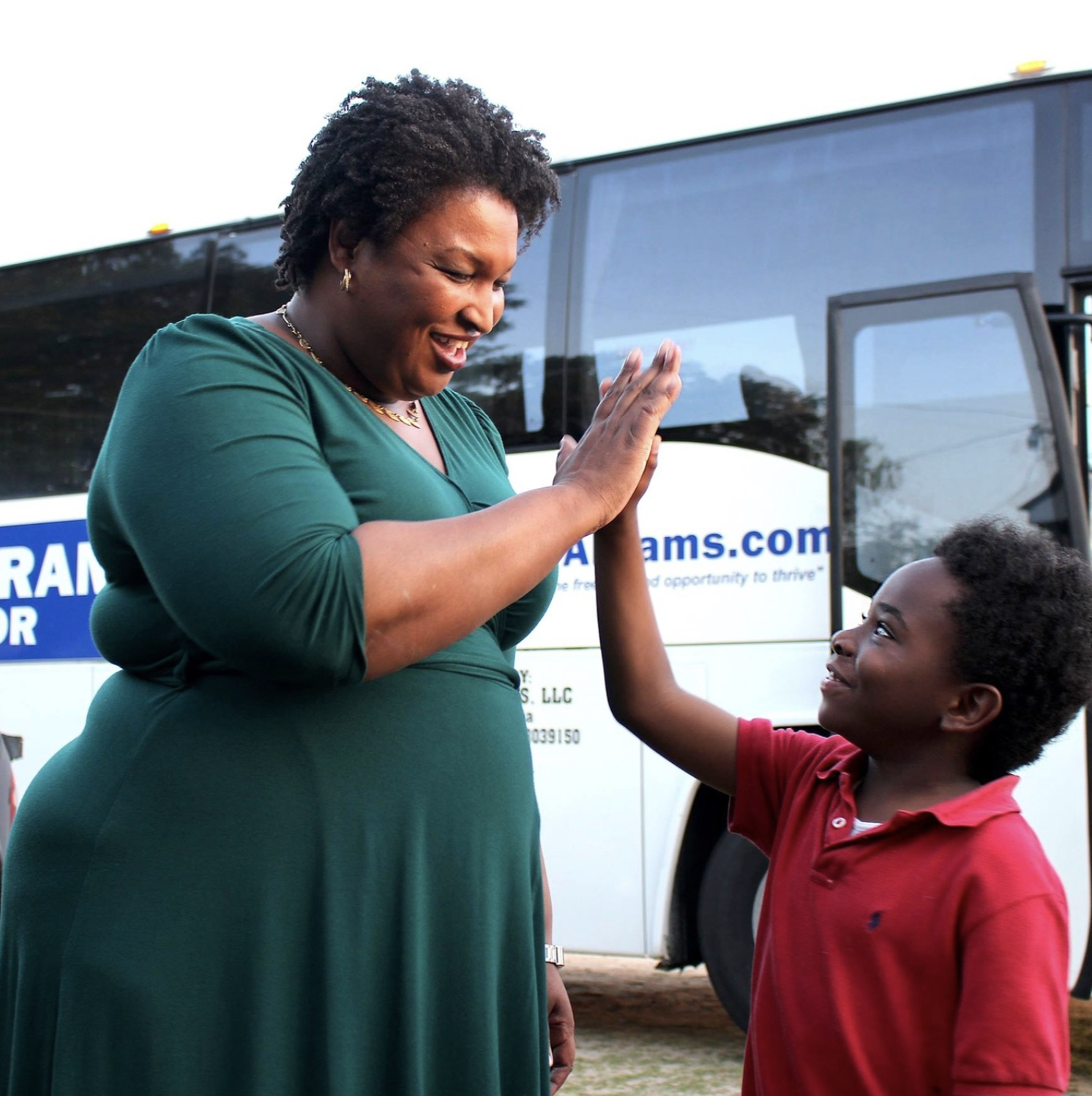
A list like this can’t exist without the acknowledgement of Stacey Abrams. When she received the Democratic nomination for Governor of Georgia, she made history as the first Black woman to win a major party’s nomination. She lost the election by a mere 55,000 votes, but it brought up an important conversation about voter suppression, especially the votes of Black communities. Abrams’ subsequent focus went towards bringing new voters to the polls. She founded Fair Fight Action in 2018 and it is largely credited for the Democratic win in Georgia during the 2020 election alongside others like LaTosha Brown and Tamieka Atkins. Abrams also became the first Black woman to address the State of the Union after the 2020 election. She announced at the end of 2021 that she will be running for Georgia’s governor again during the 2022 election. She wrote in her book, Our Time is Now, “The voting system is not just political; it is economic and social and educational. It is omnipresent and omniscient. And it is fallible. Yet, when a structure is broken, we are fools if we simply ignore the defect in favor of pretending that our democracy isn’t cracking at the seams. Our obligation is to understand where the problem is, find a solution, and make the broken whole again.” Abrams is a great example of someone who has seen a problem and has stood up to fix it herself.
—
—
Nupol Kiazolu
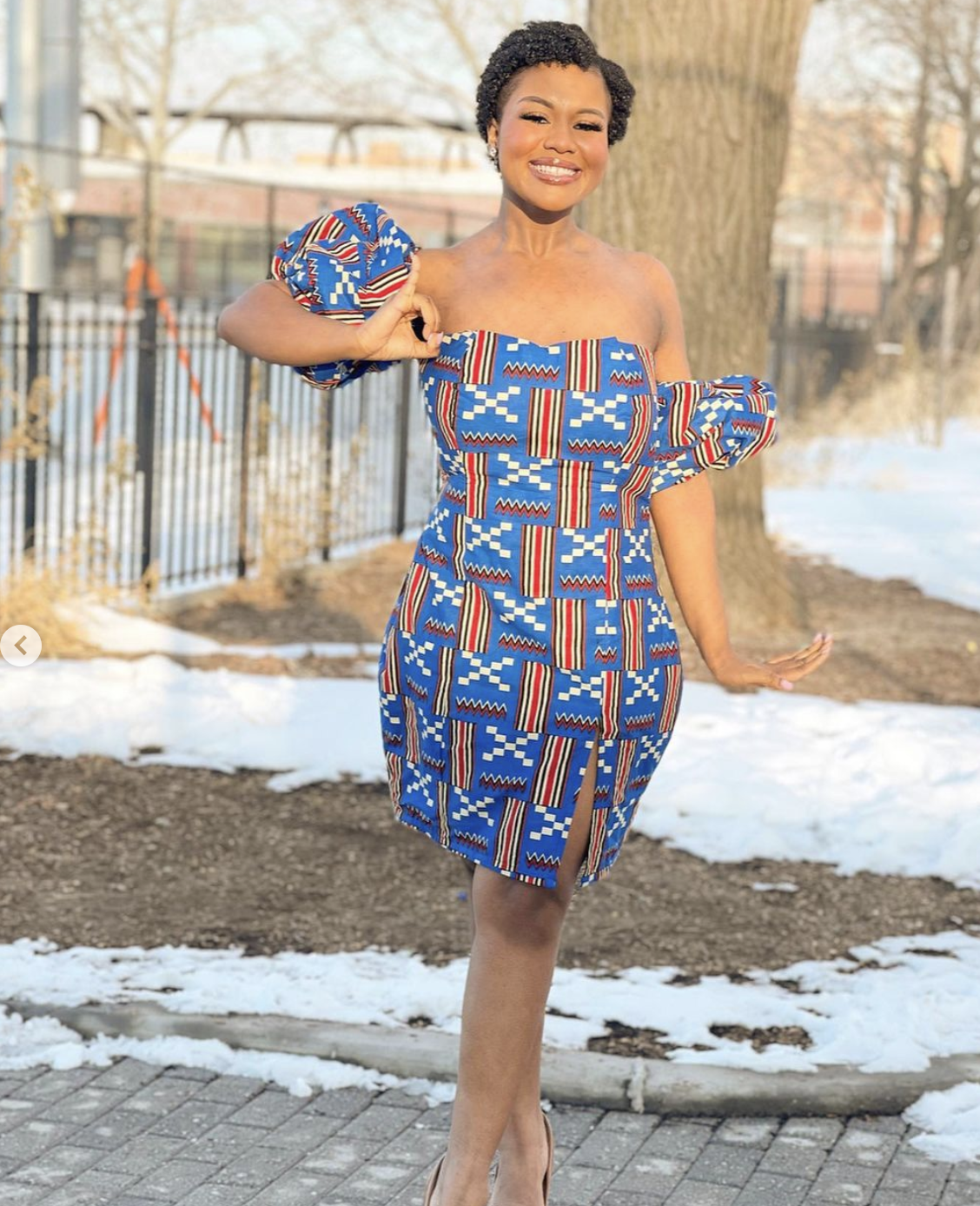
Another activist who got started at a young age was Nupol Kiazolu. At just 12 years old, she organized her first protest. After the murder of Trayvon Martin, Kiazolu showed up to school in a hoodie that said “Do I look suspicous?” while holding a bag of skittles and iced tea. When the school threatened her with punishment, she defended herself by studying her rights as a student. She joined the Black Lives Matter movement at 16 and has been fighting ever since. Kiazolu is the president of the Youth Coalition of Black Lives Matter of Greater New York and her background keeps her aware of the needs of those around her. She told Parachute Media, “My story is a testament of resilience. I was born to a teen mom in Atlanta and raised in Brooklyn after my father was murdered. I’m the oldest out of six children in a single-parent household and a first-gen college student! As a survivor of homelessness and domestic/sexual violence, my experiences have afforded me the opportunity to view this world through an empathetic lens and it guides the work I do every day. For example, I make sure food and water are at my protests because I understand many people without homes participate in my demonstrations.” In 2020, she organized one of the largest BLM protests in history in New York City. Life has not been kind to Kiazolu, but she is creating a future for herself and those around her that is promising and full of hope. She has taken hardships in her life and made them into a legacy that will positively impact anyone in her vicinity.
—
—
Noah Harris
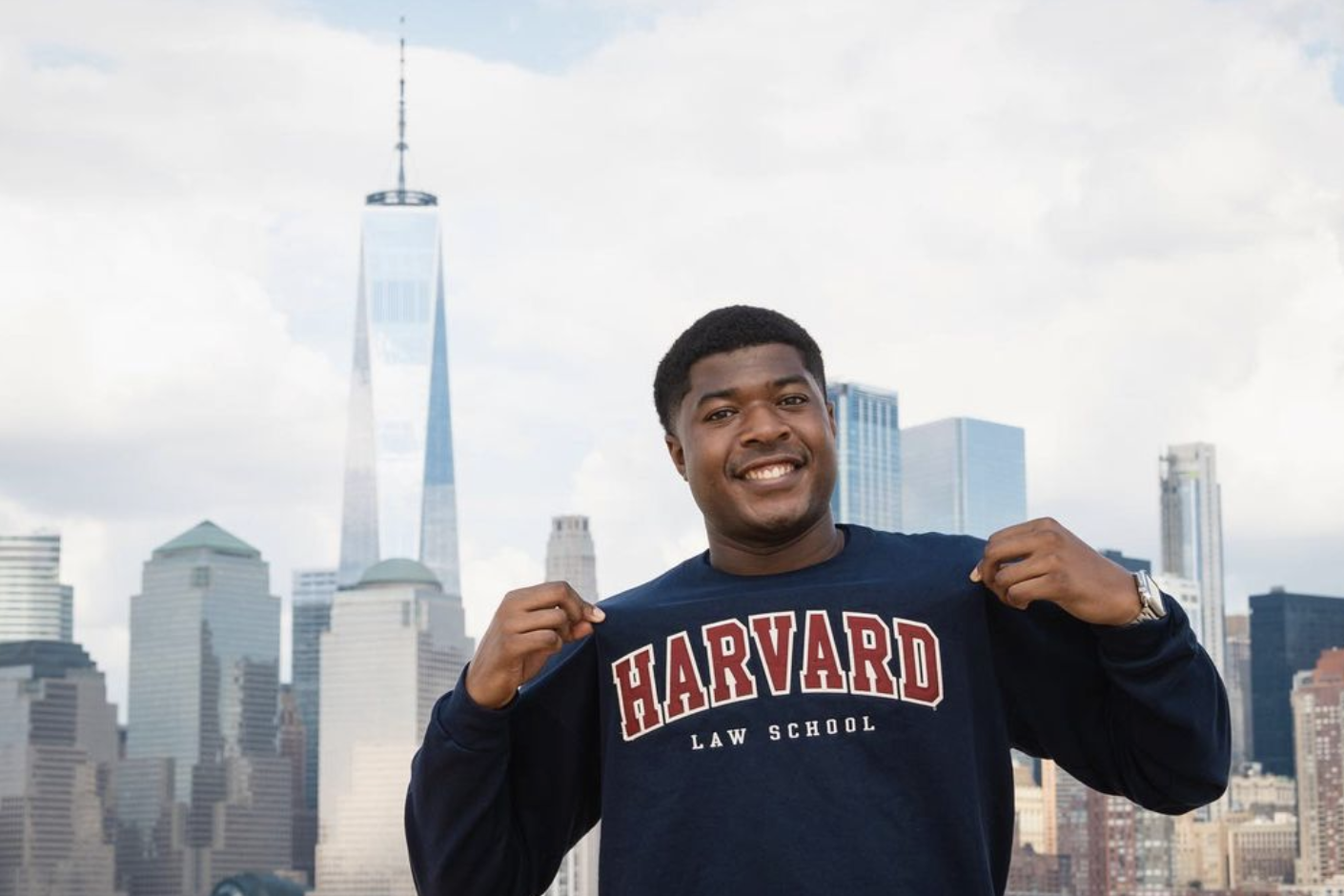
Noah Harris made waves when he became Harvard’s first Black student body president in the school’s 384-year history. He ran with Jenny Gan on the platform of “Building Tomorrow’s Harvard.” Before that, he had helped raise over $300,000 for civil rights organizations. Harris proposed a plan at Harvard that would give students up to $300 to protest, hoping to help cover any costs they might need to attend. After winning he told CNBC, “I hope the message is that Black men, and young African Americans in general, belong at these universities. That they can be from Mississippi. And to not be deterred from applying to [schools like] Harvard, Yale, Princeton or Stanford. That they can belong in these spaces. And not only can they belong, but they can thrive.” Harris has also written a childrens’ book, called Successville, that talks about the importance of getting an education. It took far too long for a Black person to be student body president at Harvard but now that it’s happened: Can you imagine the influence it has on students who didn’t think it was possible before? Harris has successfully created a space for more people who look like him. Then he took things a step further and used his platform to make a change for the students who were already there.
—
—
Lonnie Chavis
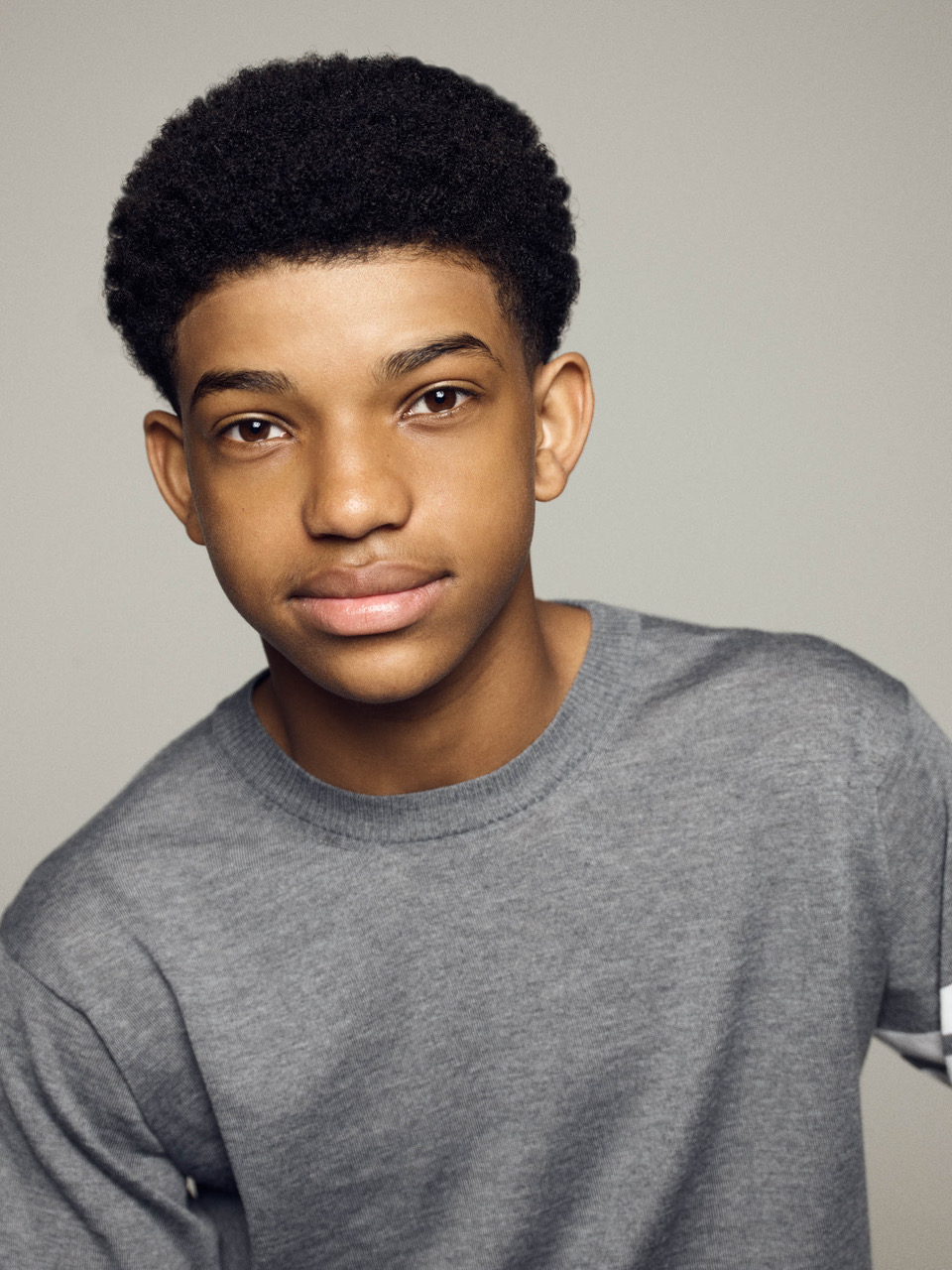
Lonnie Chavis is a 14 year old actor who is best known for his role on This Is Us. After the murder of George Floyd in 2020, Chavis wrote an essay in the form of a letter to his mother, about how he was feeling about the world around him and everything he had experienced so far. He addressed the fact that, at such a young age, he had already experienced profiling and discrimation. The heartbreaking memories of racism he shared should be enough to motivate anyone to demand change. He wrote, “This is what the world looks like for me. A 12-year-old Black boy. This is my America. Policies need to change, laws need to change, the police need to change, Hollywood needs to change, hearts need to change, America needs to change. Change has got to happen for unarmed Black citizens to not live in fear of being murdered.” Chavis is also a major advocate for bullying and teamed up with the Ad Council to create an anti-bullying campaign. Being so young, he is telling other kids that it is okay to talk about the things that have happened to them. He is giving a voice to those who normally don’t get listened to, not only for their race but for their age as well.
—
—
Cheick Camara and Ermias Tadesse
Cornell University students, Cheick Camara and Ermias Tadesse created BlackGen Capital, the university’s first Black investment fund. As members of other clubs at their school, they realized they were the only Black people participating. That led them to create the program where minority students take part in a 10 week course that helps them learn financial skills and prepare to take on internships that will further them in their education. Camara and Tadesse work on investment ideas together, put on activities, and give to charities. They told CNBC, “The issue of diversity and lack of access to resources and opportunities is not exclusive to just Cornell University, but rather, it’s an issue that plays across the entire nation.” Even with a higher education, too many students leave school still unprepared for the world around them and unaware of what to do with their degree. These minority students, with incredible talents and skills, leave college overwhelmed. Camara and Tadesse are helping to eradicate this issue and help students pave a path with easier access to success.
—
—
Victor J. Glover, Jr.
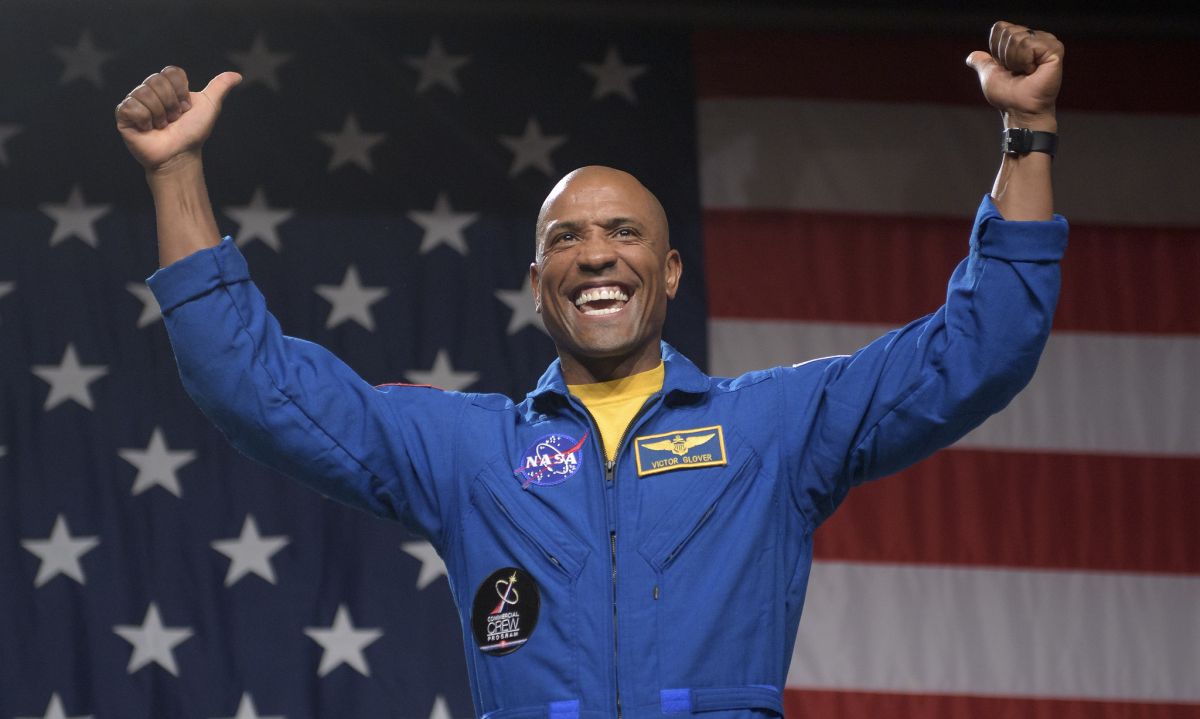
Victor J. Glover, Jr. was a Legislative Fellow in the United States Senate when he became an astronaut in 2013. He is currently second in command of the SpaceX Crew Dragon, named Resilience. He was also the first Black astronaut to live on the International Space Station for an extended amount of time. His education knows no limits, as Glover has a degree in engineering from Cal Poly, San Luis Obispo and several graduate degrees from Naval Postgraduate School, Air University, and the Air Command and Staff College. He clearly has a passion for math and science but beyond that he advocates for underrepresented people in education. In a conversation via The Smithsonian, where he spoke to a group of students, he said, “I believe that the same teamwork used by us at NASA to investigate extreme weather patterns and to help unlock the secrets of the universe can be used to solve our most pressing issues here on Earth. If we hope to solve humanity’s most important problems, we must work together. We need each other.”
Dr. Kizzmekia S. Corbett
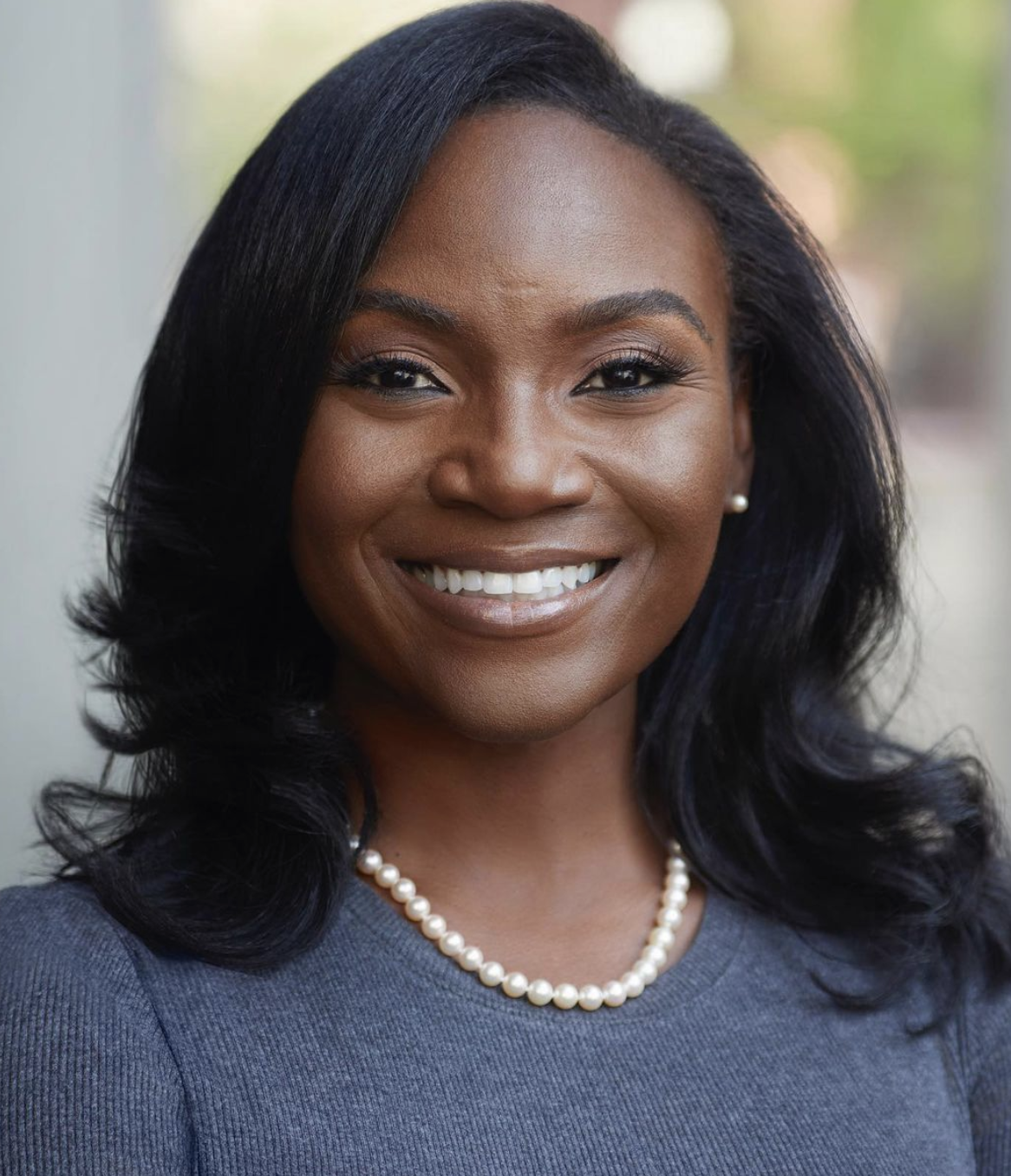
Dr. Kizzmekia S. Corbett is out here changing lives by being the head scientist on the development of the Moderna COVID-19 vaccine at the National Institutes of Health (NIH). For 15 years, Corbett has studied viruses and began working with her team just 66 days after the coronavirus began to spread. Not only did she successfully create a vaccine, but she also works hard to educate the public on vaccinations and is an advocate for STEM education. Corbett told Black Enterprise, “Having these types of conversations around inclusion—and really what is essentially cultural sensitivity [helps]. Because if I say something in African American vernacular it doesn’t change the fact that the data is the data. I think that as we progress and as generations change, it’ll get easier for everybody,” and went on to say, “Many of the things that you do in life should have some level of concern about somebody else. Even if it’s just that you have to pick one person. I would hope that everybody would have a concern for just the world, I think that it will make the entire world a better place.”
—
—
Nikole Hannah-Jones
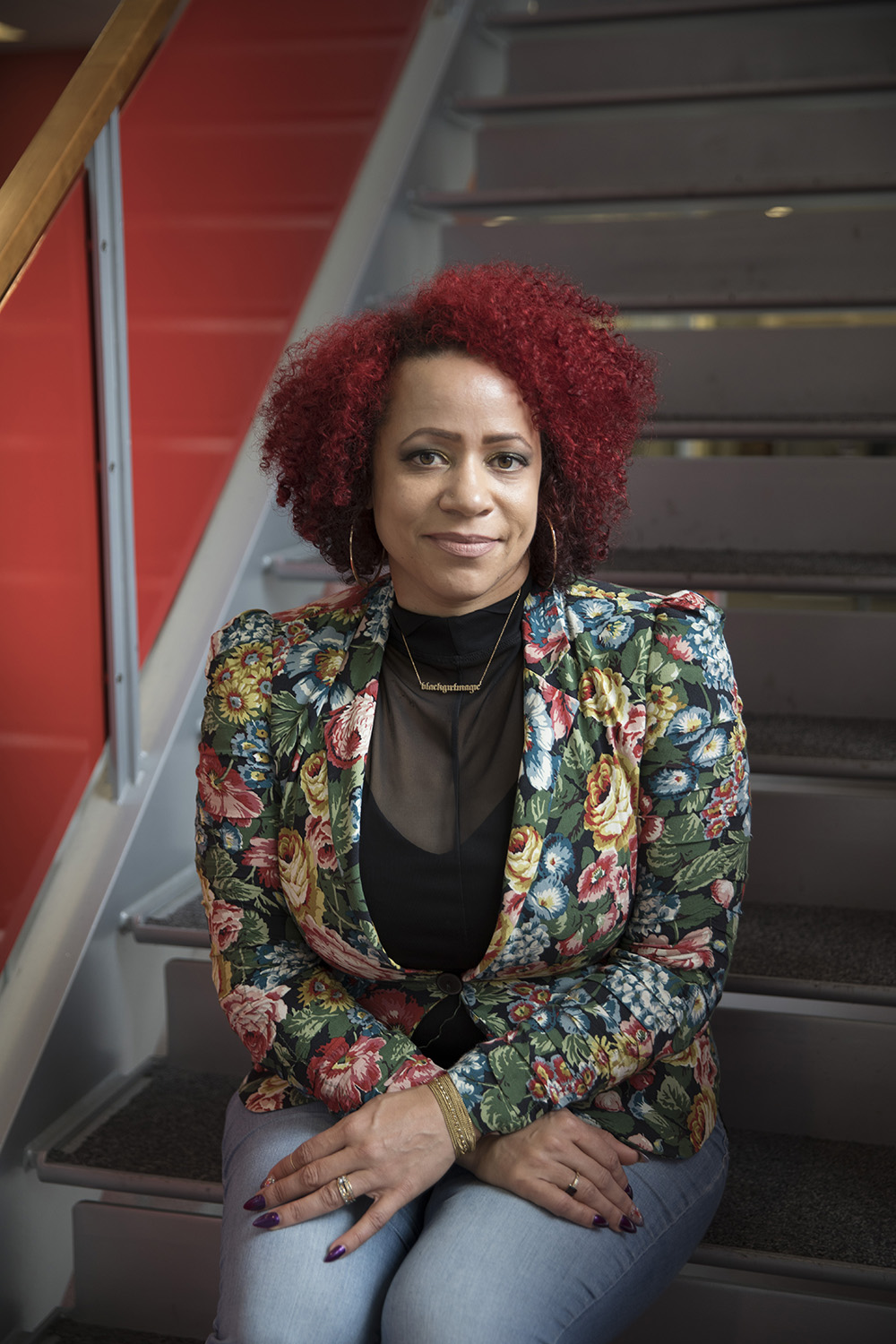
Nikole Hannah-Jones has dedicated her career to investigative journalism for The New York Times Magazine covering civil rights issues, she is a faculty member at Howard University, and is the creator of the 1619 Project for which she won a Pulitzer Prize. Her writings have contributed massively to modern day education on the truth of Black history and American history. In 2019, Hannah-Jones pitched that NYT Magazine commemorate the 400th anniversary of enslaved Africans arriving in, what would be, the United States by releasing the 1619 Project. So a year before our world got totally turned upside down, Hannah-Jones educated us on a side of American history that is rarely faced. Through a special edition of the magazine, podcasts, and eventually a book, she revealed the truth beyond the history books. Hannah-Jones told Shondaland Life, “What I have learned and come to understand through working on the 1619 Project is that no one has the right to erase our lineage,” Hannah-Jones says. “We have allowed a certain type of white American to define patriotism as performative, wearing a flag pin. True patriotism is not failing to critique your country; it’s trying to force your country to live up to its ideals.” This did not go without hate. Some states went as far as banning her educational resources. The University of North Carolina at Chapel Hill infamously chose to deny her tenure, which led Hannah-Jones to Howard University and the creation of a journalism center. The 1619 Project now provides materials for educators to teach accurately about topics like enslavement and historic Black figures. It is also being adapted into a movie. Hannah-Jones’ work is sure to leave a mark on a world that needs to change, and she is part of the change that has already been made.
—
Author & the Editor’s Note: For whatever reasons, people are still sugar coating our history and refusing to paint an accurate picture. Denial, erasure, book banning, censorship of identity, and hate disguised as “opinion” are dangerous; look at the world around you and realize these things won’t stop at other people, if you don’t stop them now they’re coming to your door.

